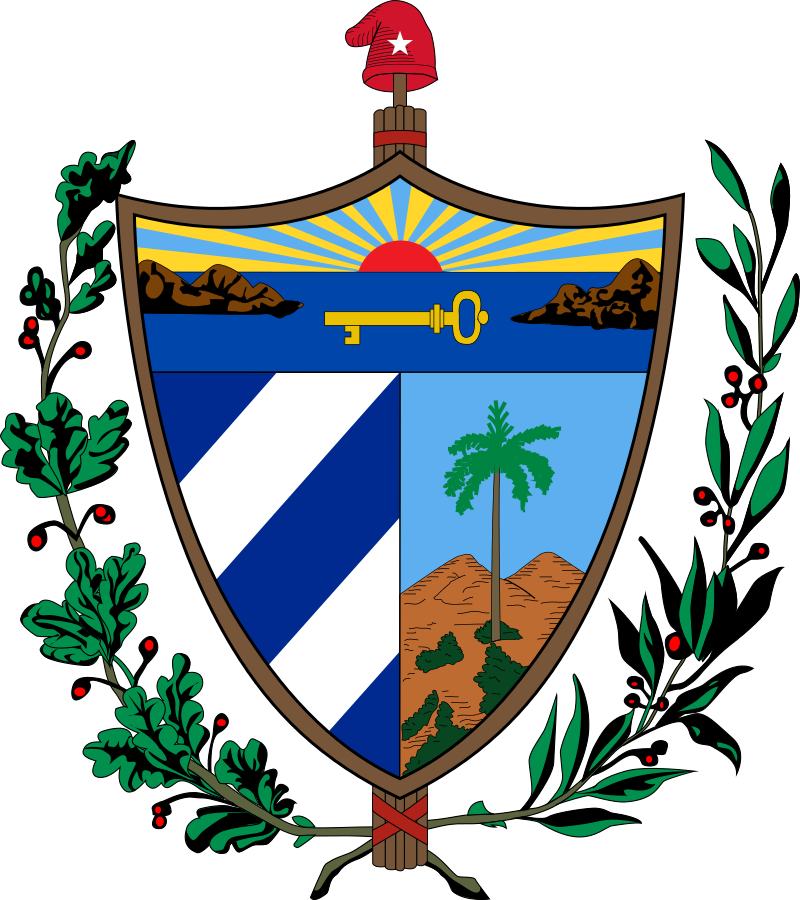The native Amerindian population of Cuba began to decline after the European discovery of the island by Christopher COLUMBUS in 1492 and following its development as a Spanish colony during the next several centuries. Large numbers of African slaves were imported to work the coffee and sugar plantations, and Havana became the launching point for the annual treasure fleets bound for Spain from Mexico and Peru. Spanish rule eventually provoked an independence movement and occasional rebellions that were harshly suppressed. US intervention during the Spanish-American War in 1898 assisted the Cubans in overthrowing Spanish rule. The Treaty of Paris established Cuban independence from Spain in 1898 and, following three-and-a-half years of subsequent US military rule, Cuba became an independent republic in 1902 after which the island experienced a string of governments mostly dominated by the military and corrupt politicians. Fidel CASTRO led a rebel army to victory in 1959; his authoritarian rule held the subsequent regime together for nearly five decades. He stepped down as president in February 2008 in favor of his younger brother Raul CASTRO. Cuba's communist revolution, with Soviet support, was exported throughout Latin America and Africa during the 1960s, 1970s, and 1980s.
The country faced a severe economic downturn in 1990 following the withdrawal of former Soviet subsidies worth $4-6 billion annually. Cuba at times portrays the US embargo, in place since 1961, as the source of its difficulties. Illicit migration to the US - using homemade rafts, alien smugglers, air flights, or via the US's southern border - is a continuing problem. In FY 2014, the US Coast Guard interdicted 2,111 Cuban nationals at sea, the highest number since FY 2008. Also in FY 2014, 24,289 Cuban migrants presented themselves at various land border ports of entry throughout the US. As a result of efforts begun in December 2014 by President OBAMA to re-establishment diplomatic relations with the Cuban government, which were severed in January 1961, the US and Cuba reopened embassies in their respective countries on 20 July 2015. Over the past decade, there has been growing communication with the Cuban Government to address national interests.
Cuba is a communist state.
Source: CIA World Factbook
Members:
Resources
Displaying 26 - 30 of 33Resolución Nº 1/12 - Procedimiento para la construcción, reconstrucción, remodelación y legalización de las bienhechurías en tierras entregadas en usufructo.
La presente Resolución aprueba el Procedimiento que tiene por objeto regular la construcción, reconstrucción, remodelación, ampliación y legalización de las edificaciones, instalaciones y obras para el adecuado mantenimiento, conservación y aprovechamiento de las tierras entregadas en usufructo a personas naturales y jurídicas, así como las viviendas del usufructuario y sus familiares, consideradas como bienhechurías.
Decreto Ley Nº 311 - Modifica el Decreto Ley Nº 300, sobre entrega de tierras estatales ociosas en usufructo.
El presente Decreto Ley modifica el que autoriza la entrega de tierras estatales ociosas en concepto de usufructo gratuito y por tiempo determinado para que las exploten en función de la producción agropecuaria, forestal y de frutales, respecto a las personas naturales que se encuentren vinculadas a una Cooperativa de Créditos y Servicios.
Enmienda: Decreto Nº 304 - Reglamento del Decreto Ley Nº 300, sobre entrega de tierras estatales ociosas en usufructo. (2012-09-25)
Decreto Nº 304 - Reglamento del Decreto Ley Nº 300, sobre entrega de tierras estatales ociosas en usufructo.
El presente Reglamento regula: a) la conformación del Fondo de Tierras Ociosas que pueden ser entregadas en usufructo; b) los requisitos que deben cumplir las personas jurídicas y naturales para ser usufructuarias; c) el procedimiento para la legalización del usufructo, su incremento y la prórroga; d) el contenido básico del Contrato de Usufructo; e) las bienhechurías; f) el control sobre la entrega de tierra ociosa y el cumplimiento del contrato de usufructo; g) la vinculación e integración del usufructuario; y h) la extinción del Contrato de Usufructo.
Resolución Nº 551/13 - Tarifas mínimas mensuales por el servicio de arrendamiento de inmuebles que se presta por las entidades estatales y sociedades mercantiles autorizadas.
La presente Resolución aplica las tarifas mínimas mensuales por metro cuadrado de área rentada contractualmente, exceptuando las áreas exteriores, por el servicio de arrendamiento de inmuebles que se presta por las entidades estatales y sociedades mercantiles de capital totalmente cubano y otras entidades autorizadas, a personas jurídicas cubanas y extranjeras, a personas naturales cubanas residentes en Cuba y extranjeras.
Decreto Nº 314 - Modifica el Decreto Nº 304, Reglamento del Decreto Ley Nº 300, sobre entrega de tierras estatales ociosas en usufructo.
El presente Decreto modifica el Reglamento sobre entrega de tierras estatales ociosas en usufructo, en relación a diversos requisitos que deben cumplir las personas jurídicas y naturales para ser usufructuarias, así como sobre el procedimiento para la legalización del usufructo, y el contenido del contrato de usufructo.
Enmienda: Decreto Nº 304 - Reglamento del Decreto Ley Nº 300, sobre entrega de tierras estatales ociosas en usufructo. (2012-09-25)


